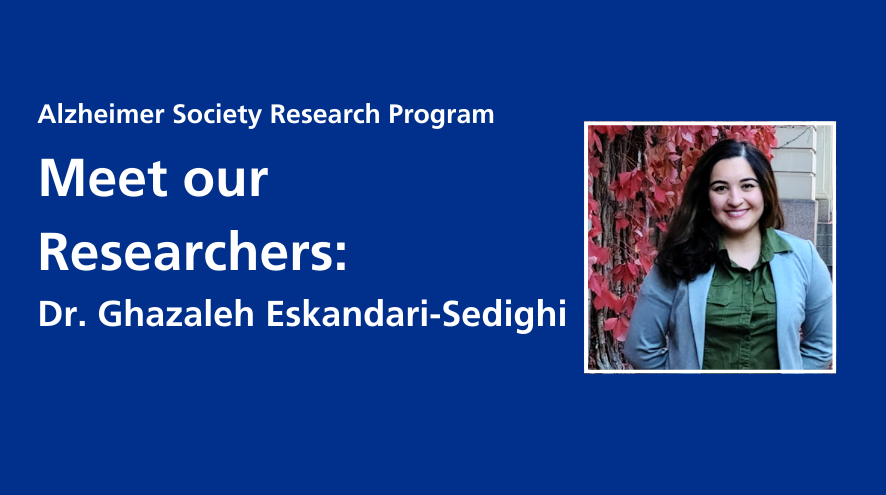Meet our researchers: Ghazaleh Eskandari-Sedighi, University of Alberta
Dr. Ghazaleh Eskandari-Sedighi from Dr. Matthew Macauley’s group at the University of Alberta talks about her research on elucidating the role of human CD33 protein in Alzheimer's disease pathogenesis. This project was funded by the Alzheimer Society Research Program (ASRP) in 2022.

In 2022, the Alzheimer Society Research Program (ASRP) funded a Postdoctoral Award: Elucidating the Role of human CD33 protein in Alzheimer's disease pathogenesis. The recipient was Dr. Ghazaleh Eskandari-Sedighi from Dr. Matthew Macauley’s group at the University of Alberta. Ghazaleh shared the key findings from the project:
"Genetic factors account for approximately 70% of the risk of developing Alzheimer’s disease (AD). One of the known genetic alterations that makes people more susceptible to developing AD is a single nucleotide polymorphism (SNP) in the CD33 gene. CD33 is abundant in brain resident immune cells, called microglia, and there are two forms (isoforms) of this protein in humans; one form increases chances of developing AD and the other is protective. Understanding how these different forms impact microglial cell function in humans has been very challenging mainly due to the lack of a reliable animal model with human CD33. Our study addressed this challenge by generating transgenic mice expressing either of the human protein isoforms in an AD mouse model, dissecting the risk and protective effects of each form for the first time. By studying each isoform individually, we provide strong evidence towards the protective effects of the rare CD33 form and show this specific form does more than just decreasing the risk and can provide additional benefits to microglia cells. These findings open new horizons towards development of CD33-based therapeutics for AD."
Read more about this exciting development from the ASRP funded project on the role of human CD33 in Alzheimer’s disease pathogenesis, in the prestigious journal Molecular Neurodegeneration.
